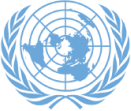Mongolyin Tsakhiagiin ELBEGDORJ
The President of Mongolia
Mongolia as a neutral state. I have long pondered about this issue. And I exchanged views on the matter. And had some studies done and conclusions drawn. Now the time to discuss it publicly has come.
Every Mongolian cares for further consolidation of our country’s freedom, independence and sovereignty. And every Mongolian endeavors to make his own contribution to this cause. Many view that being a neutral state perfectly serves that very interest. The issue – neutrality – had been hotly debated and discussed during the years when Mongolians fought for restoration of our freedom and independence, and during the tense days of democratic revolution too.
International law views the neutrality status quo in two main categories. This status classification purely depends on the decisions and proclamations a neutral state undertakes. There is a neutrality status quo in wartime. There is also a permanent neutrality status quo. There can also be active and inactive neutrality. So how the policy is named, so the content is defined. And there are certain treaties and agreements in international relations that define the policy essence and principles.
As far as Mongolia is concerned, it is true that Mongolia did not declare herself “as a permanently neutral state”. Yet in substance, form and action our foreign policy is fully coherent with the principles of neutral foreign policy. And it’s commendable that our national laws and the international treaties and agreements that Mongolia is signatory to are consistent with the neutrality principles. More specifically, Mongolia’s neutrality is delicately reflected in the very letter and spirit of the agreements and treaties we concluded with our neighboring states.
When contemplating on and discussing Mongolia’s neutrality policy we must first of all consider the following factors.
One: Since Mongolia adopted her new democratic Constitution Mongolia has actively pursued neutral in substance policies. However, we are yet to declare it, in form. The process of shaping and validating this policy is now only a matter of time.
Two: The history Mongolia has authored, our geographic location, the uniqueness of our chosen path of development are congruent with the spirit and principles of neutralism. Neutrality enables a country to maintain equal and balanced international relations. Other states and international organizations respect such a status quo of a neutral state.
Three: The state of international affairs and International order change over time. Yet the neutral policies and actions do sustain over the course of time. For the state which upholds neutrality preserves the full power to amend, renew or abandon its neutralist policy.
What does “Permanent Neutrality” mean? A permanent neutrality is a policy whereby a sovereign state declares itself to be neutral toward the belligerents during wartime and maintain neutrality in time of peace. In the event a neutral state is attacked by external aggression, it has a full right for defense. At the same time, it voluntarily assumes a duty not to wage and join wars. A permanently neutral state reserves a power to have its own army and troops. And this very right serves as the assurance of the immunity of its neutrality. A classical representative of a permanently neutral state, Switzerland, is considered to have Europe’s most capable army with high maneuver skills. And the founding concepts of Mongolia’s defense concepts are consonant with neutralism.
The territorial immunity of a neutral state is re-assured by international law. This includes both air and water borders too. It is prohibited for belligerent troops to conduct war on the territories of a neutral state. Also a neutral state has the power to not let the transportation of belligerent armies’ personnel, arms and war materials across its territory. Permanent neutrality also has certain implications for nuclear weapons issue and the country’s membership in any military alliance.
In this way the core principle of neutrality is formulated and implemented. Even so, the form of actions and implementation of this policy depends directly on the state which declares neutrality. And the interpretation is the same. Put shortly, the state declaring neutrality has the right to even narrowly define or set certain boundaries and constraints over its neutral powers, and expound and declare this policy. On the other hand, the quality of the neutrality of the state also depends on its international reputation and how active the country is on international stage.
It is not necessary for a state to seek support from any particular country or international organization to validate its neutrality status quo. Yet in international relations, a country which declares neutrality is recognized and even registered as such. But obviously any such state would aspire to achieve understanding, recognition and support from its neighboring states, other countries and international organizations. Our forefathers and fathers have always maintained dignity and temperance in any matter. Inheriting this ancestral quality, we shall hold equally high and honor the UN and our own Charter in our aspirations in the new era.
Unity, continuity and clarity of Mongolia’s foreign policy are at the heart of Mongolia’s interests and benefits. Neutrality is a universally recognized tool useful for us, the Mongolians, to harness and build upon our existing potentials on one hand, and to pursue active, flexible relations with other countries, on the other hand. This may also be seen a universal value, a collective human experience. And an opportunity for Mongolia. Opportunities are rare. Values evolve slowly. Handy here would come our persistence and consistency. Inarguably, that status of ours will help invigorate many policies, initiatives and actions centered on Mongolia.
Mongolia as a permanent neutral state. I think, further discussions and deliberations on this topic, and achieving and implementing certain decisions will be consistent with Mongolia’s interests and benefits. I have briefly explored on the definition, legal status and some other related aspects in a separate note, referenced to this article. May good deeds prosper. May my Mongolia dwell eternally.
September 7, 2015


